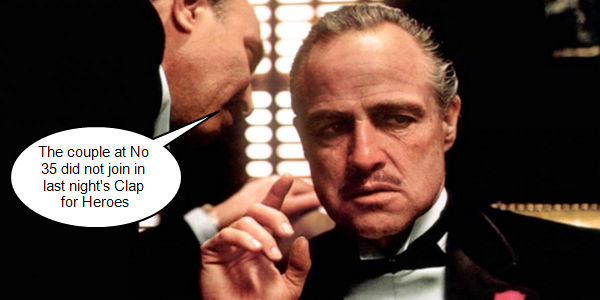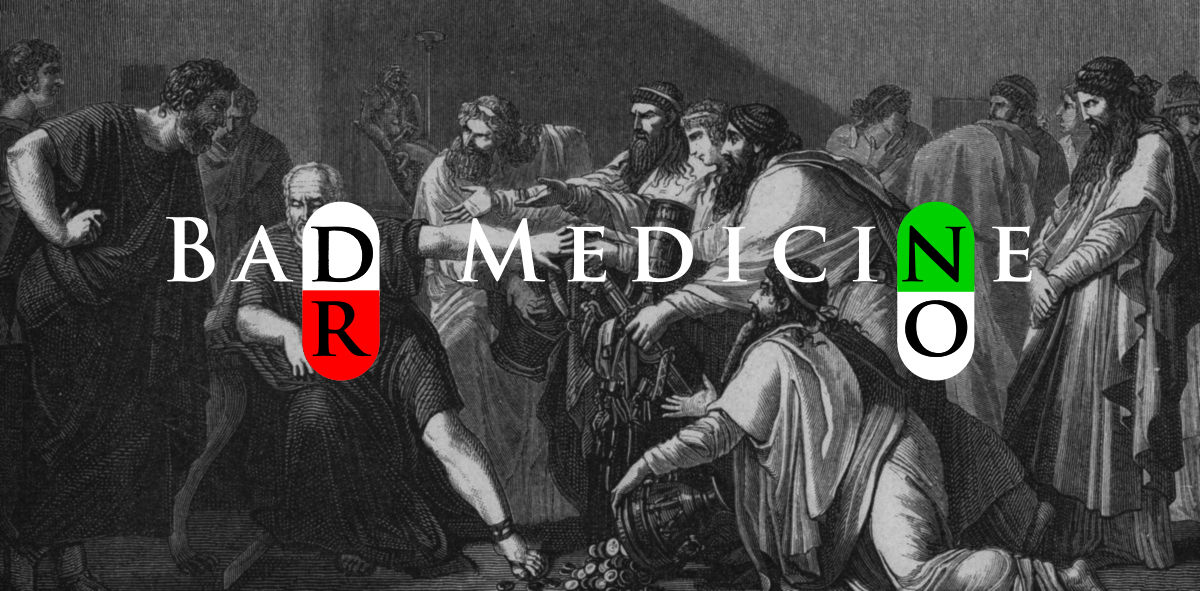You, the State and Your Fate

One of the unexpected consequences of the lockdown has been the extent to which we Brits have taken its central message — stay home, protect the NHS, save lives — to heart. The behavioural nudge experts got it wrong. Far from people getting lockdown fatigue, quite the opposite has happened. A majority of us have instead internalised the lockdown, as shown in two recent surveys, one covered by Dr No in his last post, and a second, commissioned by The Observer, and published over the weekend. Both consistently show that by and large people are afraid to go out. Stay home has stuck. #stayhome is now #stuckhome. If we are not careful, #stuckhome might just become #diehome.
But is this really that surprising? Blojob’s stuttering attempt at Churchillian oratory, which replaced ‘I have nothing to offer but blood, toil, tears and sweat’ with ‘I must level with you, level with the British public, more families, many more families, are going to lose loved ones before their time,’ has as its core the simple message: ‘be afraid’. This was on 12th March, when only a handful of covid-19 deaths had been recorded, but within days the government was reporting tens and then hundreds of daily deaths. Each new higher number struck a harder blow, like a relentless slayer driving a stake through the vampire’s heart, each blow harder than the last. Hammered home as it was, fear stuck hard and fast. That fear is still there, manifest in the reluctance to venture out from home.
Invoking a common enemy and instilling fear are as it happens also early and necessary steps in establishing authoritarian regimes. All too easily a Faustian offer emerges: surrender some liberty, and the state will protect you. Indeed, it is not over-stating the position to say that this offer is the default next step, one that, unless actively resisted, will happen, as indeed it has happened. The fearful people willingly enter into the pact. The state becomes the Protector of the people, and with that position comes authoritarian power. We have already seen the exercise of those powers, in the previously unthinkable restrictions on liberty imposed on us in recent weeks.
The next default stage, which is almost inescapable, is that the promotion of the power of the state is accompanied by a promotion in the Importance of the State. At some point, often unseen, the balance tips from the state being the servant of the people to the people being the servants of the State. Though the scales may only tip through an arc of less than one degree, the shift as it happens hardly discernable, a fundamental and far reaching shift in the order of things has happened. The State has become supreme.
Now, Dr no is not here going to fall into the reductio ad Hitlerum trap opening up so clearly before him. He is however going to point out that the bizarre reversal that has seen the NHS, which until recently used to look after and protect us, is now in need of protection from us. He is not going to make the mistake of suggesting that the national Thursday racket in praise of NHS staff are thinly disguised street level Nuremberg rallies, or that the snitching neighbours who name and shame those who do not join the racket are the Gestapo in disguise. All such suggestions are of course quite preposterous.
What he is going to say is that we have travelled part of the way down a very dangerous road, and are displaying bizarre behaviours. We have made being seen to support the NHS as important as supporting the NHS. A majority of us have willingly given up liberties that until recently we considered inalienable. We have all but in name put the elderly and vulnerable — the ‘shieldees’ — under house arrest, assuredly for their own protection, but with scant regard for their own autonomy. It looks very likely a majority of us will willingly let the state monitor our movements moment by moment, assuredly anonymously, and with no judicial intent — for now.
Perhaps we need to take a step back, and ask ourselves: are these highly unusual behaviours really who we are? Are they the natural development of Magna Carta in the 21st Centrury? Or have we, without realising it, joined our Faustian pact, only to succumb to the default decline into the madness of crowds, all watched over by the monster of authoritarianism?

It could be argued that today’s ‘pot-noodle’ generation (instant gratification from minimal effort) don’t know their history well enough, so out of ignorance are likely to repeat the same mistakes of the past, including the implications of state control.
Many, currently acting like sheep would do well to be reminded of what many before us sacrificed to allow the basic freedoms we have enjoyed, and possibly taken for granted up until recent. The media are much to blame, with it’s newsworthy criteria excluding context, background, history – perspective. Instead they phish with sound bites, broadcast alarming stats and scaremonger to the extreme. Power without responsibility.
Dr No: A majority of us indeed (certainly me) have internalised the lockdown in that (I) must, yes must, follow the central message, especially the save lives bit and I guess selfishly, my own. I have already asked myself when the lockdown is relaxed even ended – will I venture out. My response to myself is somewhat risk averse. After maybe more than twelve weeks in isolation, do I really want contracting the damn virus on my first expedition to the shops a possibility, what if the taxi driver who takes me there is viral shedding, shedding into the air that I breathe, innocently sheds on me. Or what if the coinage he gives me is change is virus contaminated… I just don’t want those twelve weeks to be wasted and for naught.
I do not consider myself fearful rather stated risk averse. The thing that does worry me however is the time when we can physically touch again. I will have to ensure I am touched by another rather than my immediate family first, for if I don’t (and contract Cov19) my family will be guilt-ridden by the possibility that they have infected me and I never never want them to feel like that, be burdened with that.
So I think the professed fear (in recent polls) is quite complex…
James: I agree with your first paragraph and much of your second. However I do not quite understand your reference to ‘sheep’ as the remainder of your sentence appears to contradict… if we obey the rules we are sheep and if we don’t we are not, (but what are we if we don’t, irresponsible?). Your words appear to offer only a lose lose argument. (Peace :o])
I agree that the MSM has much to blame for the apparent fear in society and their gotcha zeal has been more than damaging. I feel (they) are trying to make the news rather than report it. I also think the government is (MSM) pressured into making rash promises in an effort to appease, as if somehow MSM were the opposition rather than Labour… which says a lot about Labour…
Dr No & James: the government should have treated us like adults from the very beginning, had been honest with us, but BoJo needs to be liked and all is blowing up in his face (because of this). Despite her obvious politicising I think Sturgeon has handled the situation better. And I have no love for this woman…
Anna – it is the involuntary (as in you didn’t volunteer for it, or sign up to it) internalisation of the fear that you describe so well that concerns Dr No. You also describe very well the insidious ‘investment’ effect – that having invested 12 weeks of time and emotional energy in saving lives (both of others, and yourself, that’s only natural), you don’t want to blow the investment. The effect, as you say, is to make you more risk averse. The net effect is to create a new mass of ‘worried well’ (not using the sense in any derogatory sense). Generally turning people into worried well is not a good idea, in so far as it is a form of over-medicalisation. Better perhaps to aim to keep the real risks on perspective and practice risk management rather than risk aversion, and also be aware that following risk aversion will have its own negative effects, things like social isolation which some will tolerate less well than others, and not seeing you doctor about a medical condition which can be treated but isn’t because lockdown => better not go to the doctor.
Dr No is in 100% agreement about treating adults as adults, even when some of the adults aren’t always very grown up! Doing so was and is very much the Swedish model: press briefings led by the scientists, rather that politicians flanked by human shield scientists, tell the people the facts so far as they are known, and then let the people decide. The same grown up approach also allows the Swedish to admit where they have got things wrong much more easily. Compare that the the UK’s testing fiasco, the UK PPE fiasco, and the currently unfolding messaging fiasco.